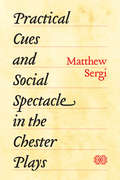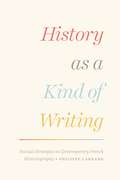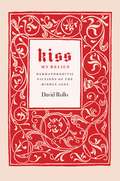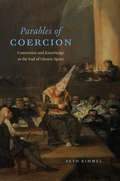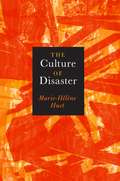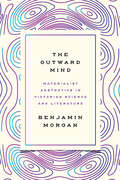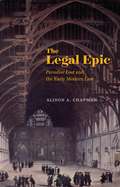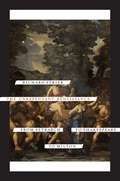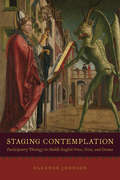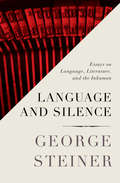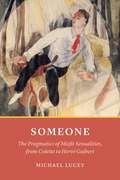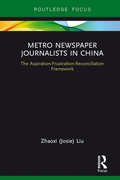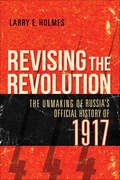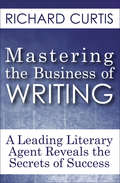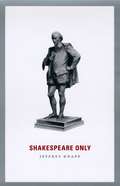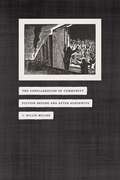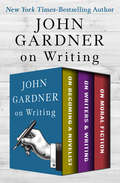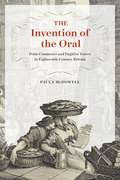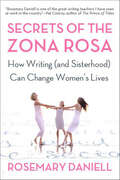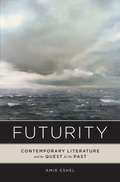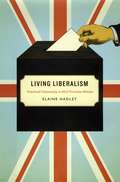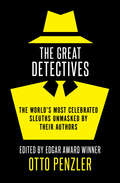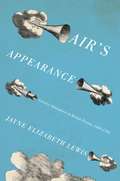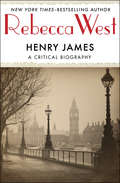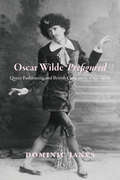- Table View
- List View
Practical Cues and Social Spectacle in the Chester Plays
by Matthew SergiAmid the crowded streets of Chester, guild players portraying biblical characters performed on colorful mobile stages hoping to draw the attention of fellow townspeople. In the fifteenth and sixteenth centuries, these Chester plays employed flamboyant live performance to adapt biblical narratives. But the original format of these fascinating performances remains cloudy, as surviving records of these plays are sparse, and the manuscripts were only written down a generation after they stopped. Revealing a vibrant set of social practices encoded in the Chester plays, Matthew Sergi provides a new methodology for reading them and a transformative look at medieval English drama. Carefully combing through the plays, Sergi seeks out cues in the dialogues that reveal information about the original staging, design, and acting. These “practical cues,” as he calls them, have gone largely unnoticed by drama scholars, who have focused on the ideology and historical contexts of these plays, rather than the methods, mechanics, and structures of the actual performances. Drawing on his experience as an actor and director, he combines close readings of these texts with fragments of records, revealing a new way to understand how the Chester plays brought biblical narratives to spectators in the noisy streets. For Sergi, plays that once appeared only as dry religious dramas come to life as raucous participatory spectacles filled with humor, camp, and devotion.
History as a Kind of Writing: Textual Strategies in Contemporary French Historiography
by Philippe CarrardIn academia, the traditional role of the humanities is being questioned by the “posts”—postmodernism, poststructuralism, and postfeminism—which means that the project of writing history only grows more complex. In History as a Kind of Writing, scholar of French literature and culture Philippe Carrard speaks to this complexity by focusing the lens on the current state of French historiography. Carrard’s work here is expansive—examining the conventions historians draw on to produce their texts and casting light on views put forward by literary theorists, theorists of history, and historians themselves. Ranging from discussions of lengthy dissertations on 1960s social and economic history to a more contemporary focus on events, actors, memory, and culture, the book digs deep into the how of history. How do historians arrange their data into narratives? What strategies do they employ to justify the validity of their descriptions? Are actors given their own voice? Along the way, Carrard also readdresses questions fundamental to the field, including its necessary membership in the narrative genre, the presumed objectivity of historiographic writing, and the place of history as a science, distinct from the natural and theoretical sciences.
Kiss My Relics: Hermaphroditic Fictions of the Middle Ages
by David RolloConservative thinkers of the early Middle Ages conceived of sensual gratification as a demonic snare contrived to debase the higher faculties of humanity, and they identified pagan writing as one of the primary conduits of decadence. Two aspects of the pagan legacy were treated with particular distrust: fiction, conceived as a devious contrivance that falsified God’s order; and rhetorical opulence, viewed as a vain extravagance. Writing that offered these dangerous allurements came to be known as “hermaphroditic” and, by the later Middle Ages, to be equated with homosexuality. At the margins of these developments, however, some authors began to validate fiction as a medium for truth and a source of legitimate enjoyment, while others began to explore and defend the pleasures of opulent rhetoric. Here David Rollo examines two such texts—Alain de Lille’s De planctu Naturae and Guillaume de Lorris and Jean de Meun’s Roman de la Rose—arguing that their authors, in acknowledging the liberating potential of their irregular written orientations, brought about a nuanced reappraisal of homosexuality. Rollo concludes with a consideration of the influence of the latter on Chaucer’s Pardoner’s Prologue and Tale.
Parables of Coercion: Conversion and Knowledge at the End of Islamic Spain
by Seth KimmelIn the sixteenth and seventeenth centuries, competing scholarly communities sought to define a Spain that was, at least officially, entirely Christian, even if many suspected that newer converts from Islam and Judaism were Christian in name only. Unlike previous books on conversion in early modern Spain, however, Parables of Coercion focuses not on the experience of the converts themselves, but rather on how questions surrounding conversion drove religious reform and scholarly innovation. In its careful examination of how Spanish authors transformed the history of scholarship through debate about forced religious conversion, Parables of Coercion makes us rethink what we mean by tolerance and intolerance, and shows that debates about forced conversion and assimilation were also disputes over the methods and practices that demarcated one scholarly discipline from another.
The Culture of Disaster
by Marie-Hélène HuetFrom antiquity through the Enlightenment, disasters were attributed to the obscure power of the stars or the vengeance of angry gods. As philosophers sought to reassess the origins of natural disasters, they also made it clear that humans shared responsibility for the damages caused by a violent universe. This far-ranging book explores the way writers, thinkers, and artists have responded to the increasingly political concept of disaster from the Enlightenment until today. Marie-Hélène Huet argues that post-Enlightenment culture has been haunted by the sense of emergency that made natural catastrophes and human deeds both a collective crisis and a personal tragedy. From the plague of 1720 to the cholera of 1832, from shipwrecks to film dystopias, disasters raise questions about identity and memory, technology, control, and liability. In her analysis, Huet considers anew the mythical figures of Medusa and Apollo, theories of epidemics, earthquakes, political crises, and films such as Blow-Up and Blade Runner. With its scope and precision, The Culture of Disaster will appeal to a wide public interested in modern culture, philosophy, and intellectual history.
The Outward Mind: Materialist Aesthetics in Victorian Science and Literature
by Benjamin MorganThough underexplored in contemporary scholarship, the Victorian attempts to turn aesthetics into a science remain one of the most fascinating aspects of that era. In The Outward Mind, Benjamin Morgan approaches this period of innovation as an important origin point for current attempts to understand art or beauty using the tools of the sciences. Moving chronologically from natural theology in the early nineteenth century to laboratory psychology in the early twentieth, Morgan draws on little-known archives of Victorian intellectuals such as William Morris, Walter Pater, John Ruskin, and others to argue that scientific studies of mind and emotion transformed the way writers and artists understood the experience of beauty and effectively redescribed aesthetic judgment as a biological adaptation. Looking beyond the Victorian period to humanistic critical theory today, he also shows how the historical relationship between science and aesthetics could be a vital resource for rethinking key concepts in contemporary literary and cultural criticism, such as materialism, empathy, practice, and form. At a moment when the tumultuous relationship between the sciences and the humanities is the subject of ongoing debate, Morgan argues for the importance of understanding the arts and sciences as incontrovertibly intertwined.
The Legal Epic: Paradise Lost and the Early Modern Law
by Alison A. ChapmanThe seventeenth century saw some of the most important jurisprudential changes in England’s history, yet the period has been largely overlooked in the rich field of literature and law. Helping to fill this gap, The Legal Epic is the first book to situate the great poet and polemicist John Milton at the center of late seventeenth-century legal history. Alison A. Chapman argues that Milton’s Paradise Lost sits at the apex of the early modern period’s long fascination with law and judicial processes. Milton’s world saw law and religion as linked disciplines and thought therefore that in different ways, both law and religion should reflect the will of God. Throughout Paradise Lost, Milton invites his readers to judge actions using not only reason and conscience but also core principles of early modern jurisprudence. Law thus informs Milton’s attempt to “justify the ways of God to men” and points readers toward the types of legal justice that should prevail on earth. Adding to the growing interest in the cultural history of law, The Legal Epic shows that England’s preeminent epic poem is also a sustained reflection on the role law plays in human society.
The Unrepentant Renaissance: From Petrarch to Shakespeare to Milton
by Richard StrierWho during the Renaissance could have dissented from the values of reason and restraint, patience and humility, rejection of the worldly and the physical? These widely articulated values were part of the inherited Christian tradition and were reinforced by key elements in the Renaissance, especially the revival of Stoicism and Platonism. This book is devoted to those who did dissent from them. Richard Strier reveals that many long-recognized major texts did question the most traditional values and uncovers a Renaissance far more bumptious and affirmative than much recent scholarship has allowed.The Unrepentant Renaissance counters the prevalent view of the period as dominated by the regulation of bodies and passions, aiming to reclaim the Renaissance as an era happily churning with surprising, worldly, and self-assertive energies. Reviving the perspective of Jacob Burckhardt and Nietzsche, Strier provides fresh and uninhibited readings of texts by Petrarch, More, Shakespeare, Ignatius Loyola, Montaigne, Descartes, and Milton. Strier’s lively argument will stir debate throughout the field of Renaissance studies.
Staging Contemplation: Participatory Theology in Middle English Prose, Verse, and Drama
by Eleanor JohnsonWhat does it mean to contemplate? In the Middle Ages, more than merely thinking with intensity, it was a religious practice entailing utter receptiveness to the divine presence. Contemplation is widely considered by scholars today to have been the highest form of devotional prayer, a rarified means of experiencing God practiced only by the most devout of monks, nuns, and mystics. Yet, in this groundbreaking new book, Eleanor Johnson argues instead for the pervasiveness and accessibility of contemplative works to medieval audiences. By drawing together ostensibly diverse literary genres—devotional prose, allegorical poetry, cycle dramas, and morality plays—Staging Contemplation paints late Middle English contemplative writing as a broad genre that operated collectively and experientially as much as through radical individual disengagement from the world. Johnson further argues that the contemplative genre played a crucial role in the exploration of the English vernacular as a literary and theological language in the fifteenth century, tracing how these works engaged modes of disfluency—from strained syntax and aberrant grammar, to puns, slang, code-switching, and laughter—to explore the limits, norms, and potential of English as a devotional language. Full of virtuoso close readings, this book demonstrates a sustained interest in how poetic language can foster a participatory experience of likeness to God among lay and devotional audiences alike.
Language and Silence: Essays on Language, Literature, and the Inhuman (Peregrines Ser.)
by George SteinerThe evolution and manipulation of language from the celebrated author of After Babel. &“A keenly discriminating literary mind at work on what it loves&” (The New York Times Book Review).Language and Silence is a book about language—and politics, meaning, silence, and the future of literature. Originally published between 1958 and 1966, the essays that make up this collection ponder whether we have passed out of an era of verbal primacy and into one of post-linguistic forms—or partial silence. Steiner explores the idea of the abandonment of contemporary literary criticism, from the classics to the works of William Shakespeare, Lawrence Durell, Thomas Mann, Leon Trotsky, and more.
Someone: The Pragmatics of Misfit Sexualities, from Colette to Hervé Guibert
by Michael LuceyImagine trying to tell someone something about yourself and your desires for which there are no words. What if the mere attempt at expression was bound to misfire, to efface the truth of that ineluctable something? In Someone, Michael Lucey considers characters from twentieth-century French literary texts whose sexual forms prove difficult to conceptualize or represent. The characters expressing these “misfit” sexualities gravitate towards same-sex encounters. Yet they differ in subtle but crucial ways from mainstream gay or lesbian identities—whether because of a discordance between gender identity and sexuality, practices specific to a certain place and time, or the fleetingness or non-exclusivity of desire. Investigating works by Simone de Beauvoir, Colette, Jean Genet, and others, Lucey probes both the range of same-sex sexual forms in twentieth-century France and the innovative literary language authors have used to explore these evanescent forms. As a portrait of fragile sexualities that involve awkward and delicate maneuvers and modes of articulation, Someone reveals just how messy the ways in which we experience and perceive sexuality remain, even to ourselves.
Metro Newspaper Journalists in China: The Aspiration-Frustration-Reconciliation Framework (Routledge Focus on Journalism Studies)
by Zhaoxi (Josie) LiuThis book explores how journalists at local metro papers in a south-western China metropolis give meaning to their work and how these meanings are shaped by the specific social environment within which these journalists operate. These metro papers provide the bulk of daily news to the general public in China, yet are often understudied compared to the country’s party news outlets. Informed by fieldwork in four metro newspapers, the book puts forward a grounded theory for exploring journalists’ occupational culture: the aspiration-frustration-reconciliation framework.
Revising the Revolution: The Unmaking of Russia's Official History of 1917
by Larry E. HolmesThe clash between scholarship and politics—between truth and propaganda—was ruthless for historians in Istpart, the Russian Communist Central Committee's official historical department.Istpart was tasked with preserving the documentary record, compiling memoirs, and upholding ideological conformism within the national narrative of the 1917 revolution. In Revising the Revolution, Larry E. Holmes examines the role of Istpart's historians, in both the Moscow office and a regional branch in Viatka, who initially believed they could adhere to the traditional standards of research and simultaneously provide a history useful to the party. However, they quickly realized that the party rejected any version of history that suggested nonideological or nonpolitical sources of truth. By 1928, Istpart had largely abandoned its mission to promote scholarly work on the 1917 revolution and instead advanced the party's master narrative. Revising the Revolution explores the battle for the Russian national narrative and the ways in which history can be used to centralize power.
Mastering the Business of Writing: A Leading Literary Agent Reveals the Secrets of Success
by Richard CurtisOne of the most comprehensive guides currently on the market, MASTERING THE BUSINESS OF WRITING is an insider's guide to the business of being a professional writer. All aspects of the publishing industry are explained, both for the aspiring author and the established writer wishing to jump start a professional career. This guide includes everything you need to know about publishers, agents, and the track to success, including: What agents do and how they develop relationships within the publishing industry that can be beneficial to your career; the best way to formulate a book proposal that sells; what publishers are really looking for in a book—and what they aren't; understanding technicalities of advances, contracts, multibook deals and subsidiary rights; the significance of sales conferences and bookstore chains; essential manners and protocols for establishing positive relations with your agent, editor and publisher, legal issues, copyright, and much, much more....
Shakespeare Only
by Jeffrey KnappThree decades of controversy in Shakespeare studies can be summed up in a single question: Was Shakespeare one of a kind? On one side of the debate are the Shakespeare lovers, the bardolatrists, who insist on Shakespeare’s timeless preeminence as an author. On the other side are the theater historians who view modern claims of Shakespeare’s uniqueness as a distortion of his real professional life. In Shakespeare Only, Knapp draws on an extraordinary array of historical evidence to reconstruct Shakespeare’s authorial identity as Shakespeare and his contemporaries actually understood it. He argues that Shakespeare tried to adapt his own singular talent and ambition to the collaborative enterprise of drama by imagining himself as uniquely embodying the diverse, fractious energies of the popular theater. Rewriting our current histories of authorship as well as Renaissance drama, Shakespeare Only recaptures a sense of the creative force that mass entertainment exerted on Shakespeare and that Shakespeare exerted on mass entertainment.
The Conflagration of Community: Fiction before and after Auschwitz
by J. Hillis Miller“After Auschwitz to write even a single poem is barbaric.” The Conflagration of Community challenges Theodor Adorno’s famous statement about aesthetic production after the Holocaust, arguing for the possibility of literature to bear witness to extreme collective and personal experiences. J. Hillis Miller masterfully considers how novels about the Holocaust relate to fictions written before and after it, and uses theories of community from Jean-Luc Nancy and Derrida to explore the dissolution of community bonds in its wake.Miller juxtaposes readings of books about the Holocaust—Keneally’s Schindler’s List, McEwan’s Black Dogs, Spiegelman’s Maus, and Kertész’s Fatelessness—with Kafka’s novels and Morrison’s Beloved, asking what it means to think of texts as acts of testimony. Throughout, Miller questions the resonance between the difficulty of imagining, understanding, or remembering Auschwitz—a difficulty so often a theme in records of the Holocaust—and the exasperating resistance to clear, conclusive interpretation of these novels. The Conflagration of Community is an eloquent study of literature’s value to fathoming the unfathomable.
John Gardner on Writing: On Becoming a Novelist, On Writers & Writing, and On Moral Fiction
by John GardnerThree books in one volume: Advice and reflections on modern fiction from &“one of the greatest creative writing teachers we&’ve ever had&” (Frederick Busch). In On Becoming a Novelist, John Gardner advises the aspiring fiction author on such topics as the value of creative writing workshops, the developmental stages of literary growth, and the inevitable experience of writer&’s block. Drawn from his two decades of experience in creative writing, Gardner balances his compassion for his students with his knowledge of the publishing industry, and truthfully relates his experiences of the hardships that lie ahead for aspiring authors. In On Writers & Writing, acclaimed novelist John Gardner discusses the craft of fiction writing, taking to task some of his best-known contemporaries in the process. Gardner criticizes some for writing disingenuous fiction, and commends others who produce literature that acts as a life-affirming force. He offers insights into and exacting critiques on such writers as Vladimir Nabokov, John Updike, Saul Bellow, and John Cheever, while addressing his personal influences and delivering broad-ranging observations on literary culture. And in On Moral Fiction, John Gardner&’s thesis is simple: &“True art is by its nature moral.&” Since the book&’s first publication, the passion behind Gardner&’s assertion has both provoked and inspired readers. In examining the work of his peers, Gardner analyzes what has gone wrong, in his view, in modern art and literature, and how shortcomings in artistic criticism have contributed to the problem. He develops his argument by showing how artists and critics can reintroduce morality and substance to their work to improve society and cultivate our morality.
The Invention of the Oral: Print Commerce and Fugitive Voices in Eighteenth-Century Britain
by Paula McDowellJust as today’s embrace of the digital has sparked interest in the history of print culture, so in eighteenth-century Britain the dramatic proliferation of print gave rise to urgent efforts to historicize different media forms and to understand their unique powers. And so it was, Paula McDowell argues, that our modern concepts of oral culture and print culture began to crystallize, and authors and intellectuals drew on older theological notion of oral tradition to forge the modern secular notion of oral tradition that we know today. Drawing on an impressive array of sources including travel narratives, elocution manuals, theological writings, ballad collections, and legal records, McDowell re-creates a world in which everyone from fishwives to philosophers, clergymen to street hucksters, competed for space and audiences in taverns, marketplaces, and the street. She argues that the earliest positive efforts to theorize "oral tradition," and to depict popular oral culture as a culture (rather than a lack of culture), were prompted less by any protodemocratic impulse than by a profound discomfort with new cultures of reading, writing, and even speaking shaped by print. Challenging traditional models of oral versus literate societies and key assumptions about culture’s ties to the spoken and the written word, this landmark study reorients critical conversations across eighteenth-century studies, media and communications studies, the history of the book, and beyond.
Secrets of the Zona Rosa: How Writing (and Sisterhood) Can Change Women's Lives
by Rosemary DaniellAn inspiring guide featuring the wit, wisdom, and stories of Zona Rosa, the writing-and-sisterhood workshop that has empowered thousands of womenFor more than twenty years, Rosemary Daniell—Southern belle, successful writer, and tireless champion of female empowerment—has led Zona Rosa, a writing workshop for women founded on the premise that writing can be not only a creative challenge but a tool for healing. Here, she shares the secrets of Zona Rosa: practical advice and home-grown "Exorcises" that help you face and think through writing issues, and life in general.You'll learn how to avoid the "13 (Possible) Boo Boos" that plague everyone's writing. You'll bring yourself to "Write About the Thing I Most Don't Want to Write About" and learn how facing the difficult past can lead to breakthroughs. You'll discover "The Emotional Tai Chi of Getting Your Work Out There," with suggestions for painlessly sending your work into the world. Along the way, you'll meet some of the many women who have improved their writing—and lives—through the camaraderie, constructive advice, and fun of Zona Rosa. And you'll be inspired by Rosemary Daniell herself, who has weathered personal tragedy, Bad Love, and her own writing issues to come out singing. Secrets of the Zona Rosa is essential reading for any woman who writes—and who has lived a life full of stories.
Futurity: Contemporary Literature and the Quest for the Past
by Amir EshelWhen looking at how trauma is represented in literature and the arts, we tend to focus on the weight of the past. In this book, Amir Eshel suggests that this retrospective gaze has trapped us in a search for reason in the madness of the twentieth century’s catastrophes at the expense of literature’s prospective vision. Considering several key literary works, Eshel argues in Futurity that by grappling with watershed events of modernity, these works display a future-centric engagement with the past that opens up the present to new political, cultural, and ethical possibilities—what he calls futurity. Bringing together postwar German, Israeli, and Anglo-American literature, Eshel traces a shared trajectory of futurity in world literature. He begins by examining German works of fiction and the debates they spurred over the future character of Germany’s public sphere. Turning to literary works by Jewish-Israeli writers as they revisit Israel’s political birth, he shows how these stories inspired a powerful reconsideration of Israel’s identity. Eshel then discusses post-1989 literature—from Ian McEwan’s Black Dogs to J. M. Coetzee’s Diary of a Bad Year—revealing how these books turn to events like World War II and the Iraq War not simply to make sense of the past but to contemplate the political and intellectual horizon that emerged after 1989. Bringing to light how reflections on the past create tools for the future, Futurity reminds us of the numerous possibilities literature holds for grappling with the challenges of both today and tomorrow.
Living Liberalism: Practical Citizenship in Mid-Victorian Britain
by Elaine HadleyIn the mid-Victorian era, liberalism was a practical politics: it had a party, it informed legislation, and it had adherents who identified with and expressed it as opinion. It was also the first British political movement to depend more on people than property, and on opinion rather than interest. But how would these subjects of liberal politics actually live liberalism?To answer this question, Elaine Hadley focuses on the key concept of individuation—how it is embodied in politics and daily life and how it is expressed through opinion, discussion and sincerity. These are concerns that have been absent from commentary on the liberal subject. Living Liberalism argues that the properties of liberalism—citizenship, the vote, the candidate, and reform, among others—were developed in response to a chaotic and antagonistic world. In exploring how political liberalism imagined its impact on Victorian society, Hadley reveals an entirely new and unexpected prehistory of our modern liberal politics. A major revisionist account that alters our sense of the trajectory of liberalism, Living Liberalism revises our understanding of the presumption of the liberal subject.
The Great Detectives: The World's Most Celebrated Sleuths Unmasked by Their Authors
by Otto PenzlerThe origins of literature&’s finest crime fighters, told by their creators themselves Their names ring out like gunshots in the dark of a back alley, crime fighters of a lost era whose heroic deeds will never be forgotten. They are men like Lew Archer, Pierre Chambrun, Flash Casey, and the Shadow. They are women like Mrs. North and the immortal Nancy Drew. These are detectives, and they are some of the only true heroes the twentieth century ever knew. In this classic volume, Otto Penzler presents essays written by the authors who created these famous characters. We learn how Ed McBain killed—and resurrected—the hero of the 87th Precinct, how international agent Quiller wrote his will, and how Dick Tracy first announced that &“crime does not pay.&” Some of these heroes may be more famous than others, but there is not one whom you wouldn&’t like on your side in a courtroom, a shootout, or an old-fashioned barroom brawl.
Air's Appearance: Literary Atmosphere in British Fiction, 1660–1794
by Jayne Elizabeth LewisIn Air’s Appearance, Jayne Elizabeth Lewis enlists her readers in pursuit of the elusive concept of atmosphere in literary works. She shows how diverse conceptions of air in the eighteenth century converged in British fiction, producing the modern literary sense of atmosphere and moving novelists to explore the threshold between material and immaterial worlds. Air’s Appearance links the emergence of literary atmosphere to changing ideas about air and the earth’s atmosphere in natural philosophy, as well as to the era’s theories of the supernatural and fascination with social manners—or, as they are now known, “airs.” Lewis thus offers a striking new interpretation of several standard features of the Enlightenment—the scientific revolution, the decline of magic, character-based sociability, and the rise of the novel—that considers them in terms of the romance of air that permeates and connects them. As it explores key episodes in the history of natural philosophy and in major literary works like Paradise Lost, “The Rape of the Lock,” Robinson Crusoe, and The Mysteries of Udolpho, this book promises to change the atmosphere of eighteenth-century studies and the history of the novel.
Henry James: A Critical Biography
by Rebecca WestThe first book by distinguished novelist, journalist, and literary critic Rebecca West: a biography of Henry JamesSetting the standard for a century&’s worth of criticism, Rebecca West diagnosed Henry James as an American who &“could never feel at home until he was in exile&” in this slim, readable biography, published just a few months after his death in 1916.West boldly assesses Roderick Hudson as &“not a good book,&” and displays remarkable foresight in describing Daisy Miller as a &“sad and lovely&” book that &“will strike each new generation afresh.&” An early advocate of feminist principles, she has fascinating things to say about James&’s heroines, and her division of his work into early and late periods continues to be a basic principle of Jamesian scholarship.One of the twentieth century&’s brightest minds, Rebecca West began her career as a public intellectual with this thoughtful and compelling study of a literary giant. This ebook has been professionally proofread to ensure accuracy and readability on all devices.
Oscar Wilde Prefigured: Queer Fashioning and British Caricature, 1750–1900
by Dominic Janes“I do not say you are it, but you look it, and you pose at it, which is just as bad,” Lord Queensbury challenged Oscar Wilde in the courtroom—which erupted in laughter—accusing Wilde of posing as a sodomite. What was so terrible about posing as a sodomite, and why was Queensbury’s horror greeted with such amusement? In Oscar Wilde Prefigured, Dominic Janes suggests that what divided the two sides in this case was not so much the question of whether Wilde was or was not a sodomite, but whether or not it mattered that people could appear to be sodomites. For many, intimations of sodomy were simply a part of the amusing spectacle of sophisticated life.Oscar Wilde Prefigured is a study of the prehistory of this “queer moment” in 1895. Janes explores the complex ways in which men who desired sex with men in Britain had expressed such interests through clothing, style, and deportment since the mid-eighteenth century. He supplements the well-established narrative of the inscription of sodomitical acts into a homosexual label and identity at the end of the nineteenth century by teasing out the means by which same-sex desires could be signaled through visual display in Georgian and Victorian Britain. Wilde, it turns out, is not the starting point for public queer figuration. He is the pivot by which Georgian figures and twentieth-century camp stereotypes meet. Drawing on the mutually reinforcing phenomena of dandyism and caricature of alleged effeminates, Janes examines a wide range of images drawn from theater, fashion, and the popular press to reveal new dimensions of identity politics, gender performance, and queer culture.
